Happy Thursday! Don’t show up to Mother’s Day brunch this weekend empty-handed; give mom the gift of fact-based news and expert analysis that respects her intelligence and her time.
Quick Hits: Today’s Top Stories
- The papal conclave in Rome did not elect a new pope during their first round of voting on Wednesday, signaled by the black smoke above the Sistine Chapel. Following the death of Pope Francis last month, 133 cardinals will vote to select the new pope in the coming days. Although the closed-door process does not have a set length, the last five papal elections have not taken more than three days. Voting will continue Thursday morning, and if a pope is successfully chosen, white smoke will billow above the chapel.
- Treasury Secretary Scott Bessent and U.S. Trade Representative Jamieson Greer will meet with China’s lead economic and trade representative, He Lifeng, in Switzerland this weekend. The talks are expected to focus on reducing the tariffs on U.S. and Chinese goods—which stand at 125 percent and 145 percent, respectively—rather than a full trade deal. The officials will seek de-escalation, Bessent said, describing the current tariff rates as unsustainable. But President Donald Trump indicated Wednesday that Washington would not lower its levies on Chinese products ahead of the scheduled talks.
- The Federal Reserve on Wednesday held interest rates steady amid concerns over the economic impact of the Trump administration’s tariffs. “If the large increases in tariffs that have been announced are sustained,” Fed Chairman Jerome Powell said at a news conference yesterday, “they are likely to generate a rise in inflation, a slowdown in economic growth, and an increase in unemployment.” But Powell also expressed his apprehension about moving too fast to adjust rates, adding that the Fed is going to “be patient.” His comments lowered expectations for a rate cut in June, with analysts predicting that borrowing rates will remain at their target range of 4.25 to 4.5 percent.
- Dozens of masked pro-Palestinian, anti-Israel protesters occupied Columbia University’s Butler Library on Wednesday, prompting university administrators to ask the New York City Police Department to clear the demonstrators. Two public safety officers were injured in the incident, according to Columbia’s acting president. In a statement, the protesters called on students to “propagate the successes of the heroic Palestinian armed resistance in weakening Israel and U.S. imperialism.” They also asserted that they were renaming the library “Basel Al-Araj Popular University,” after a Palestinian man accused of plotting attacks against Israelis before he was killed in a shootout with Israeli soldiers in 2017. The protests came just over a year after anti-Israel protesters briefly occupied Columbia’s Hamilton Hall.
- U.S. District Judge Brian Murphy on Wednesday temporarily blocked the Trump administration from deporting immigrants to Libya—or to any country where they are not citizens—without due process. The ruling followed reports on Tuesday that a military aircraft was preparing to transport a group of migrants to Libya, a country with a history of human rights violations and political turmoil. In his ruling, Murphy stated that the move, if undertaken without giving immigrants a chance to raise fear-based claims, would defy his earlier order blocking deportations to third countries.
- President Trump announced plans on Wednesday to nominate Dr. Casey Means to serve as surgeon general after the White House withdrew its previous nominee, Dr. Janette Nesheiwat. Nesheiwat, a medical contributor on Fox News, was found last month to have misrepresented details about her medical education, sparking a controversy that MAGA activist Laura Loomer reportedly used to encourage Trump to pick a different nominee. Means is a wellness influencer in the Make America Healthy Again movement and the co-author of a book criticizing the medical establishment for failing to root out persistent chronic disease in the United States.
Harvard v. Trump Continues

Since taking control in January, the Trump administration has been on a mission to, depending on who you’re asking, reform elite higher education or destroy it. But over the last few weeks, its fire has been focused on one institution more than any other: Harvard University.
The most recent salvo against Harvard came Monday, from Education Secretary Linda McMahon. In a scathing letter, she accused Harvard of violating civil rights law and announced that it would receive no future federal grants. “Receiving such taxpayer funds is a privilege, not a right,” she wrote. “Yet instead of using these funds to advance the education of its students, Harvard is engaging in a systemic pattern of violating federal law.”
McMahon’s letter comes on top of other actions targeting the university, including a list of demands for reforms to Harvard’s admissions, hiring practices, and curricular content made by a task force investigating antisemitism.
Harvard, for its part, has vowed to fight back. But the university is walking a tightrope as it seeks to rehabilitate its image with conservative lawmakers and the broader public. Beyond its looming legal battle, Harvard faces an even graver challenge: convincing skeptics that government funding for the U.S.’s oldest and wealthiest university is still worth it.
McMahon’s letter criticized Harvard for a host of issues, lambasting the university for introducing an “embarrassing” remedial math course, highlighting its “bloated bureaucracy,” and asking, plaintively, “Why is there so much HATE?” But while such critiques may be part of the administration’s general attack on elite higher education, they weren’t the legal basis for the federal government’s decision to revoke grant funding. Instead, the funding battle centered on the charge that Harvard had violated Title VI of the Civil Rights Act of 1964, which prohibits institutions from receiving federal funds if they engage in discrimination based on religion, race, or national origin.
Almost entirely absent from McMahon’s letter was the charge that Harvard turns a blind eye to anti-Jewish bias—the accusation at the center of Harvard’s decision to dig in its heels and fight last month, after a letter to the university from the administration’s antisemitism task force came to light. Because Harvard had “failed to live up to both the intellectual and civil rights conditions that justify federal investment,” the authors of the letter wrote, Harvard’s federal funding was endangered.
In exchange for turning the spigot back on, the task force demanded a host of reforms, including changes to its admissions process for international students and a review of degree programs accused of fueling antisemitic harassment. An “investment is not an entitlement,” three lawyers for the task force wrote. If Harvard failed to uphold civil rights laws or failed to combat “ideological capture,” it would risk billions in federal grant funding.
Harvard said it could not comply with the measures, which it argued would amount to a fundamental reorganization of university governance. “The university will not surrender its independence or relinquish its constitutional rights,” lawyers representing Harvard wrote in a letter responding to the demands. “Neither Harvard nor any other private university can allow itself to be taken over by the federal government.”
Although anonymous White House officials later told reporters that the letter had been sent by mistake, the administration stood by its demands, freezing $2.2 billion in funding to the university mere hours later. McMahon’s letter, which affirmed the task force’s “proposed common-sense reforms,” escalated the battle by foreclosing on the possibility of any grants being awarded in the future. “Harvard will cease to be a publicly-funded institution,” and should rely solely on its endowment and donors, she wrote. “You have an approximately $53 Billion head start, much of which was made possible by the fact that you are living within the walls of, and benefiting from the prosperity secured by the United States of America and its free-market system you teach your students to despise.”
Last month, Harvard filed a lawsuit alleging that the administration’s threatened cuts amounted to unlawful executive overreach—and the university may be on firm legal ground. The Trump administration—both by freezing funding in April and announcing that it would block all future funding earlier this month—effectively short-circuited the legal process for civil rights investigations, legal experts argued.
“By abandoning existing processes, they’re opening themselves up to losing in court,” Tyler Coward, the lead counsel for government affairs at the Foundation for Individual Rights and Expression, told TMD. Coward pointed out that binding federal regulations mandate that the Department of Education’s Office of Civil Rights handle investigations into Title VI violations, and that they must produce clear evidence of civil rights violations to enforce penalties. In short, the government cannot simply declare that an institution is violating federal law and then act accordingly.
But what if, at some future date, the antisemitism task force is able to find clear evidence that Harvard violated the Civil Rights Act? Even then, the administration might not be able to put blanket holds on funding, Aaron Tang, a professor at the University of California, Davis, who focuses on constitutional and education law, told TMD. “There’s a First Amendment problem,” he noted, because both demand letters could be seen as targeting certain political viewpoints.
For example, McMahon’s letter condemned Harvard for “inviting foreign students, who engage in violent behavior and show contempt for the United States of America” and criticized the “strongly left-leaning Obama political appointee Penny Pritzker,” the president of Harvard’s Board of Overseers and the former commerce secretary. For their part, the task force’s lawyers criticized the left-leaning bias of Harvard faculty. In court, Tang said, all of these claims would be used as evidence that the White House was discriminating against the university due to its political expression.
Finally, if the Trump administration did in fact prove that Harvard was deliberately fostering an atmosphere of antisemitism, it would have to comply with limits set by Title VI itself. The statute mandates that any penalty levied by the government must be “limited in its effect” to the specific program engaging in discrimination. For instance, it’s unclear whether judges will accept the White House’s argument that combating campus antisemitism requires the cancellation of funding to a given lab’s tuberculosis research.
That said, it’s possible that the White House doesn’t actually intend to win its looming legal battle. “Whoever punches first causes a lot of damage, regardless of whether they’re right or wrong,” Derek Black, a law professor at the University of South Carolina, told TMD. While Harvard may have the resources to invest in a grueling legal fight, poorer schools might be less willing to sign up for a face-off with the federal government, creating a chilling effect.
The Trump administration could be wagering that more schools will take the same route as Columbia University, which in March agreed to implement reforms amid the government’s threats to withhold $400 million in federal funding. On the other hand, “the precedent [set by] Harvard makes fighting back in other instances easier,” Black noted, by resolving legal considerations raised by the funding freeze. In that case, more schools might be willing to begin a case that they are confident of winning.
But even as Harvard is gearing up for a legal duel with the White House, the university is trying to get its own house in order. Last week, two separate task forces created by Harvard President Alan Garber released their final reports on pervasive antisemitism and Islamophobia on Harvard’s campus. The committee tasked with investigating antisemitism found that Israeli and Jewish students were indeed faced with an “alienating and hostile atmosphere,” subject to social stigma, exclusion, biased teaching, harassment, and overt pressure to disavow Israel.
Meanwhile, nearly half of Arab and/or Muslim students who responded to a survey from the task force on Islamophobia reported feeling physically unsafe on campus, a far higher rate than students of other ethnicities and religions. The task force also asserted that there was a pervasive sense of “abandonment and silencing” felt by Harvard students and staff who were Arab, Muslim, or merely sympathized with the Palestinian cause.
The reports are damning, but their mere existence seems to demonstrate Harvard’s efforts to implement reforms itself—almost certainly as part of a strategy to rebuild almost non-existent trust with conservatives. In its case against the government, Harvard enlisted the help of respected conservative lawyers, including Paul Clement, a former solicitor general under President George W. Bush, and Robert Hur, who led the Department of Justice’s investigation into the mishandling of classified documents by President Joe Biden.
Garber also sat for an interview with the Wall Street Journal’s editor-in-chief, Emma Tucker, on Tuesday. “We’ve had some real problems that we should address,” he conceded, noting that dissenting viewpoints often seemed unwelcome on Harvard’s campus and that the university had a perception problem with the general public. “It may be that we don’t have as many conservatives as we should have,” Garber said. “Part of it also may be that people don’t feel comfortable speaking out when they disagree.”
But while the university’s outreach to conservatives is welcome, it remains to be seen whether it was sincere, said Frederick M. Hess, the director of educational policy studies at the American Enterprise Institute. “It’s not that the president of these institutions themselves are usually ideologues,” he told TMD. “It’s that they let themselves get steamrolled by the 10 or 20 percent of faculty and students who are.”
While Harvard may have a relatively clear-cut legal battle ahead of it, it’s unclear whether it can ward off criticisms about persistent ideological bias. “The fight came to me,” Garber told the Journal, when asked why Harvard chose to stand up to Trump. But whether that fight is the last one or the first of many is an open question. Much will depend on how effectively Garber and his peers can convince skeptics that their commitment to reform is real.
“While campus leaders will make the case that this feels hostile and short-sighted,” Hess said, “Republicans can fairly say this is all hard-earned skepticism.”
Today’s Must-Read(s)
Look, there’s nothing wrong with diversity, equity, or inclusion—as words, values, or goals. It’s good to bring together people with diverse views and backgrounds, to prevent groupthink and facilitate creativity. Equity is a centuries-old concept in Anglo-American law that boils down to fairness and justice, and indeed we ought to treat everyone fairly. We should make people feel included where they work or study, because kindness is costless and also helps organizational missions. The problem arises when DEI dogma perverts those basic words to mean the opposite of their dictionary definitions, to stifle intellectual diversity, undermine equal opportunity, and exclude dissenting voices. DEI as practiced stands for discrimination, exclusion, and indoctrination—and treating people in ways that make social justice warriors indistinguishable from white supremacists.
The real way forward is to identify the upstream problem, and develop upstream solutions. That, in essence, is what an ideal DEI program can and should do in our institutions and organizations: Identify any potential barriers to entry, help our institutions correct for them, and develop systems and structures that allow talented, hard-working people to thrive. This isn’t just the ethical thing to do; it’s also the wisest business move. Human talent and skill are assets, and the organizations that seek, invest in, cultivate, and retain them better than their competitors succeed. Unless you subscribe to the repulsive and erroneous idea that there is inherently less talent, skill, and ingenuity to mine from historically marginalized groups, you should see the benefits of finding the best people no matter where they come from.
Toeing the Company Line
True Trumpism Has Never Been Tried
Have populists squandered their opportunity?
Dollars and Zero Sense
Donald Trump loves gold, but he doesn’t understand money.
Toys, Pencils, and Poverty at the Margins
Tariffs’ biggest cost comes not from buying pricier stuff but buying nothing at all.
Weak Men Create Hard Times
And weak men love a strongman.
Incelphobia
Mad men.
Actual Animus
Trump’s transgender military ban goes into effect.
Worth Your Time
- Writing for New York Magazine, James D. Walsh explored how, as artificial intelligence continues improving at breakneck speed, its remarkable abilities have enabled rampant cheating in higher education. “In January 2023, just two months after OpenAI launched ChatGPT, a survey of 1,000 college students found that nearly 90 percent of them had used the chatbot to help with homework assignments,” he wrote. “Generative-AI chatbots—ChatGPT but also Google’s Gemini, Anthropic’s Claude, Microsoft’s Copilot, and others—take their notes during class, devise their study guides and practice tests, summarize novels and textbooks, and brainstorm, outline, and draft their essays. STEM students are using AI to automate their research and data analyses and to sail through dense coding and debugging assignments. ‘College is just how well I can use ChatGPT at this point,’ a student in Utah recently captioned a video of herself copy-and-pasting a chapter from her Genocide and Mass Atrocity textbook into ChatGPT.”
- In Foreign Affairs, Heidi Crebo-Rediker argued that the U.S. has not done enough to extricate itself from a dependence on critical minerals controlled by China—and proposed some solutions. “Government officials and independent analysts have long understood that the United States is again dangerously overdependent on foreign adversaries, mainly China, for critical minerals, metals, and rare-earth elements,” she wrote. “These resources—which are key inputs in advanced technologies, energy infrastructure, and defense systems—play a vital role in the United States’ peacetime economy and national security. Over the past decade, Washington has taken some meaningful steps to address the country’s supply chain vulnerabilities. Yet these efforts remain too modest. Should a serious conflict between the United States and China escalate in, for example, the Taiwan Strait or the South China Sea, China could plausibly shut off all of its exports of critical materials to the United States and its allies alike.”
Presented Without Comment
Bloomberg: Trump Teases ‘Major’ Trade Announcement, Expected to Be UK Deal
Also Presented Without Comment
CBS News: Biden Says ‘What the Hell’s Going on Here?’ About Trump’s Greenland, Canada Comments
In the Zeitgeist
After creating the hit Netflix sketch-comedy series I Think You Should Leave, comedian Tim Robinson is hitting the big screen this week alongside Paul Rudd in their new A24 movie, Friendship. The film follows a friendship breakup between two neighbors, and it looks as tonally offbeat as we’ve come to expect from Robinson.
Let Us Know
Do you think that Harvard University can repair its reputation among conservatives?
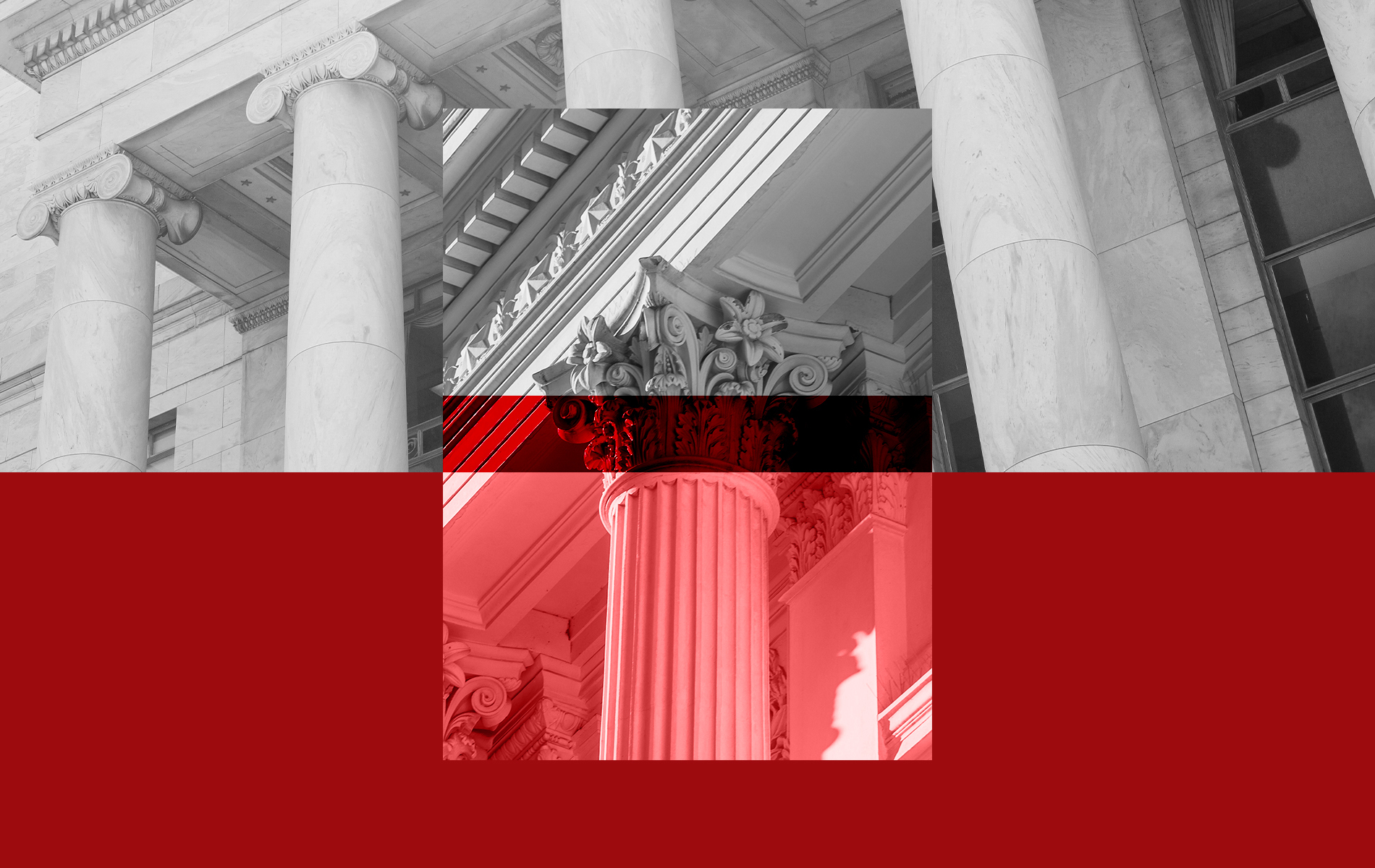
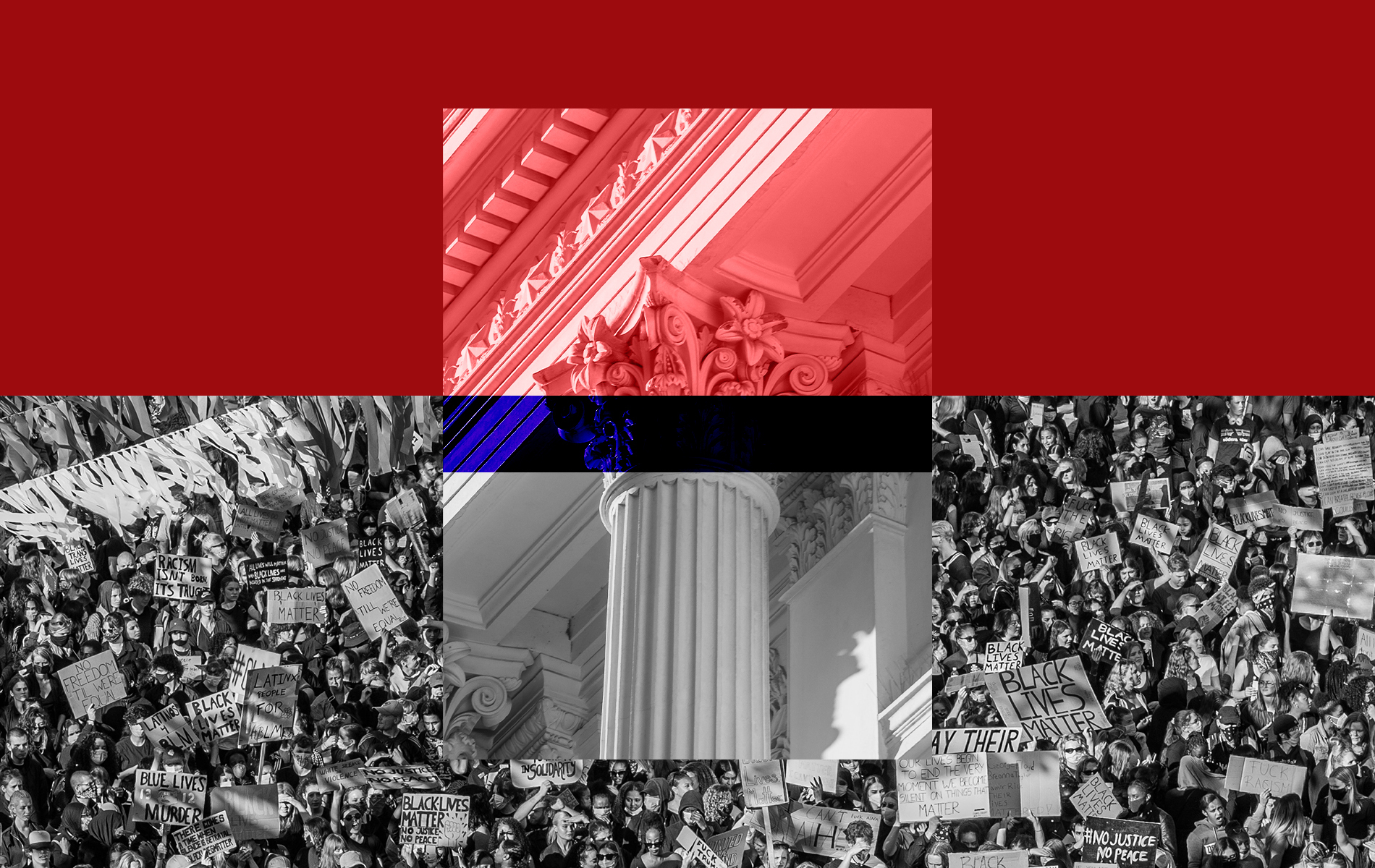
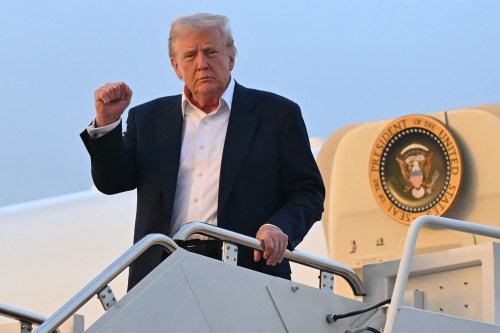
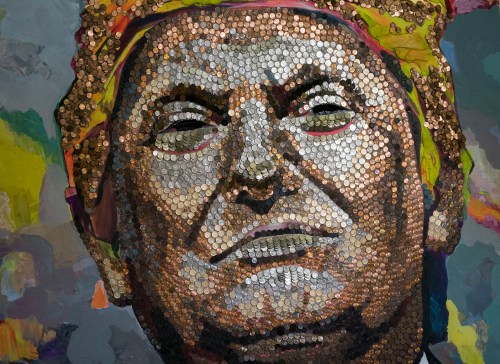


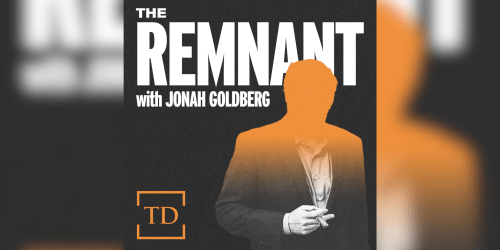
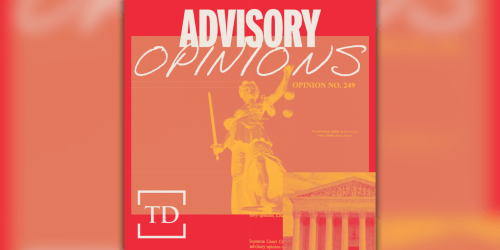



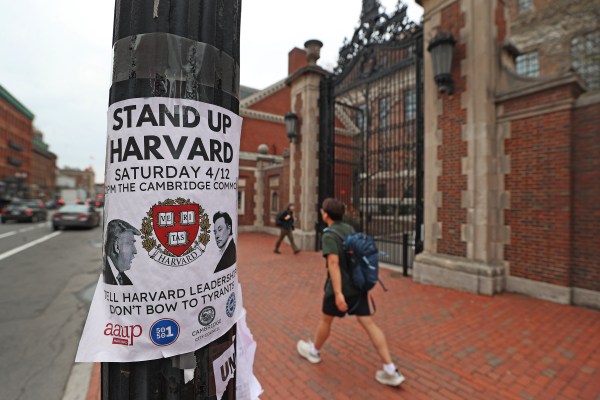
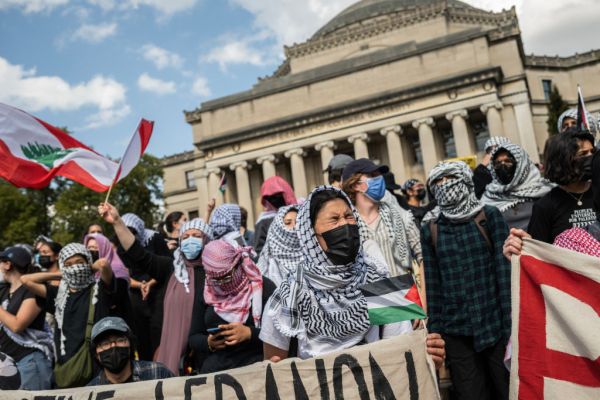
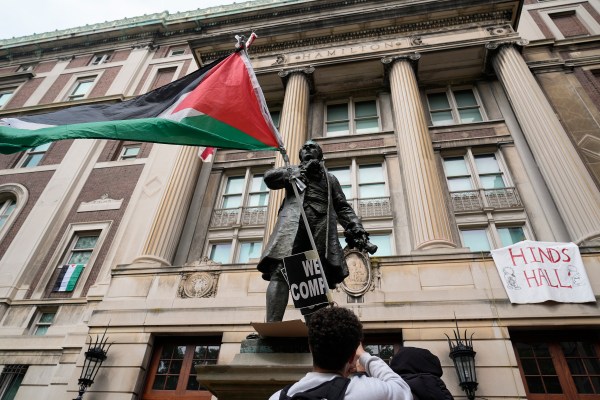

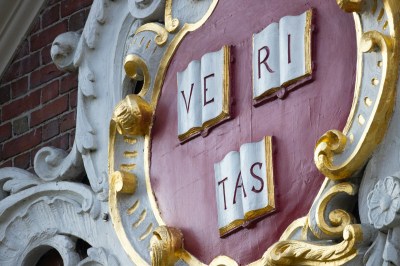
Please note that we at The Dispatch hold ourselves, our work, and our commenters to a higher standard than other places on the internet. We welcome comments that foster genuine debate or discussion—including comments critical of us or our work—but responses that include ad hominem attacks on fellow Dispatch members or are intended to stoke fear and anger may be moderated.
With your membership, you only have the ability to comment on The Morning Dispatch articles. Consider upgrading to join the conversation everywhere.